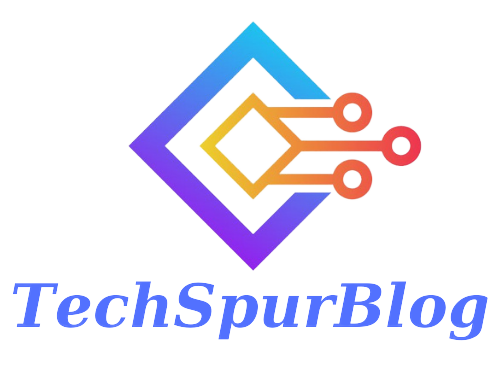Introduction
Early childhood education (ECE) plays a pivotal role in shaping the intellectual, emotional, and social development of young children. This period, which typically spans from birth to eight years of age, is a critical phase in a child’s life when they are most receptive to learning and development. The importance of early childhood education cannot be overstated, as it not only sets the foundation for academic success but also cultivates essential life skills, socio-emotional intelligence, and a love for learning that can last a lifetime.
The Significance of Early Childhood Education
Brain Development
ECE programs are designed to stimulate cognitive development during the formative years. Research indicates that the brain experiences rapid growth and development in the early years, making this a crucial time for fostering neural connections. Quality ECE environments promote activities that challenge and engage young minds, such as storytelling, problem-solving, and creative play.
Social and Emotional Development
During early childhood, children embark on the journey of understanding emotions, relationships, and social interactions. Early childhood education (ECE) environments offer a secure and supportive setting where children can safely explore their own emotions and gain insight into the feelings of their peers. It also teaches important skills like empathy, cooperation, and conflict resolution.
School Readiness
High-quality ECE programs help children build a strong foundation for later academic success. They learn essential skills like pre-reading, pre-writing, and basic math concepts, setting the stage for a smoother transition into formal schooling. These programs also help children develop attention, focus, and other critical executive function skills.
Lifelong Learning
One of the key goals of early childhood education is to instill a love for learning. Children who have positive early learning experiences are more likely to be curious, inquisitive, and motivated learners throughout their lives. This enthusiasm for learning can open doors to various opportunities in the future.
Also Read: The Most Popular Summer Schools in the UK
Models of Early Childhood Education

Montessori Education
Montessori programs emphasize independence, self-directed learning, and hands-on activities. Children work at their own pace, choosing from a range of materials that encourage exploration and discovery.
Reggio Emilia Approach
This approach is known for its emphasis on creativity, self-expression, and collaboration. It encourages children to explore their interests and ideas through various forms of expression, including art, storytelling, and problem-solving.
Play-Based Education
Play-based ECE programs recognize the value of play in children’s development. Through play, children develop important skills such as critical thinking, imagination, and social interaction.
High/Scope Approach
This approach focuses on active learning, where children plan and carry out their activities, reflect on their experiences, and build on what they’ve learned. Teachers act as facilitators, guiding children’s inquiries.
The Role of Teachers in Early Childhood Education
ECE educators are essential in creating a supportive, enriching environment for young children. They play the role of not just instructors but also caregivers and mentors. Skilled ECE teachers understand child development, possess patience, empathy, and the ability to tailor instruction to individual children’s needs. They create a nurturing, safe, and stimulating environment that encourages exploration and discovery.
Also Read: What is Zone of Proximal Development and Scaffolding in Education
Challenges in Early Childhood Education
Challenges in the realm of early childhood education are multifaceted and require ongoing attention and solutions to ensure the well-being and development of young children. These challenges encompass various aspects, including access, quality, and resources.
Access and Equity
Not all children have equal access to quality early childhood education programs. Disparities in access exist based on factors like income, location, and cultural background. This inequality can have a lasting impact on a child’s development and future opportunities.
Affordability
For numerous families, the cost of accessing high-quality early childhood education can be exceedingly burdensome. This financial hurdle frequently leads to children being unable to avail themselves of the advantages that early learning opportunities offer.
Teacher Qualifications and Compensation
Ensuring that early childhood educators are well-trained and adequately compensated is crucial. Low pay and limited professional development opportunities can lead to a shortage of qualified ECE professionals.
Curriculum and Assessment
Balancing developmentally appropriate practices with academic expectations is challenging. Striking the right equilibrium between fostering a love for learning and preparing children for formal schooling is an ongoing challenge.
Inclusive Education
Meeting the needs of children with diverse abilities and backgrounds requires specialized training and resources. Creating inclusive environments can be complex, but it is essential to ensure that all children receive the support they need.
Standardization vs. Individualization
Finding the right balance between standardized curriculum and individualized instruction can be difficult. Children have unique learning styles, and early childhood educators must cater to these differences effectively.
Parental Involvement
Engaging parents in their child’s early education is essential, but it can be challenging, especially for families facing economic or language barriers.
Regulations and Licensing
Ensuring that early childhood education programs meet high standards for safety, curriculum quality, and teacher qualifications requires robust regulatory and licensing frameworks. Striking the right balance between oversight and flexibility is a constant challenge.
Data Collection and Accountability
Measuring the effectiveness of early childhood education programs and tracking children’s progress can be complex. Ensuring that data is collected and analyzed effectively to inform improvements is an ongoing challenge.
Also Read: Schoology FBISD: Getting Started with Schoology FBISD Login
Conclusion
Early childhood education is the cornerstone upon which future learning, development, and success are built. The benefits of investing in quality ECE programs are immeasurable, as they lead to well-rounded individuals with a strong foundation in academic and life skills. To ensure a bright future for our children, we must continue to prioritize and invest in early childhood education, recognizing its role in nurturing the potential of our youngest generation

We are the founders of Techspurblog and we have been in this industry for over Four years. We pride ourselves on being the global leader in developing Technology Blog, which can create original content.
We are a team of enthusiastic people who want to share our experience, knowledge and enterprise with the world. We love what we do and we hope you will too!





